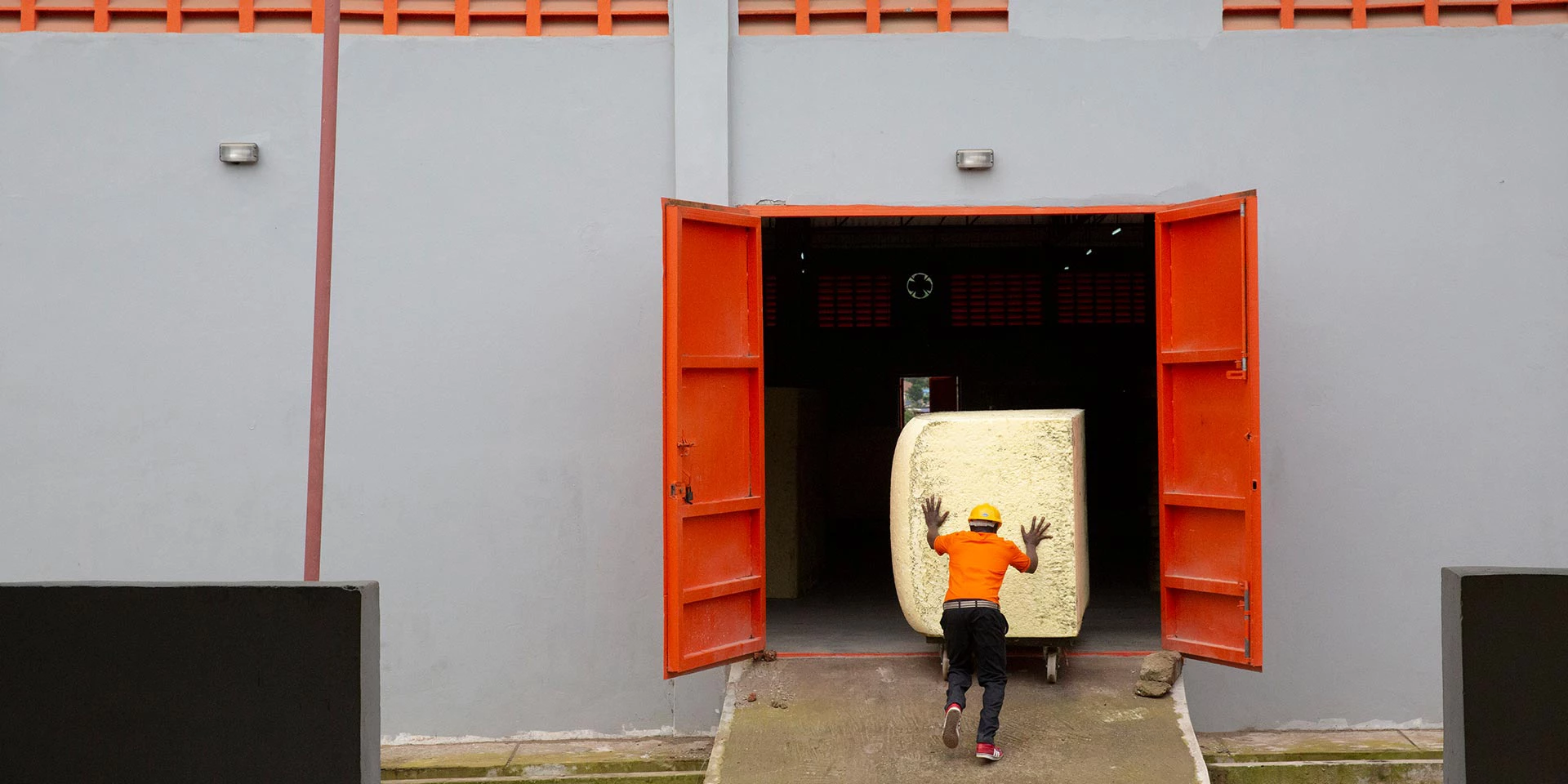By Jason Hopps
NAIROBI, Kenya—When the Ebola virus struck Guinea, Liberia, and Sierra Leone in 2013 and 2014, life shuddered to a halt as schools, bars, and restaurants shut, travel links were severed, and citizens were ordered to wash hands, isolate, and stay indoors. Sound familiar?
The economies of those countries, already beset by limited access to investments, small markets, and a punishing slide in commodity prices, teetered on the edge.
“To survive all that, and years of civil strife or war, too, and then be hit by Ebola was really a cruel blow,” said Eric Mabushi, Guinea Coordinator at the time for IFC’s Conflict Affected States in Africa (CASA) Initiative. “The countries hit by Ebola struggled to deal with the health and economic consequences... It looked like they might face another lost decade.”
Similar fears are circulating today about COVID-19, which has torn through countries around the world, though has yet to hit Africa with full force seen elsewhere. This means there remains a window of opportunity for African countries to prevent a full-blown crisis.
Many African governments have shut schools and curtailed social life to slow the virus’s spread. The World Bank Group has responded with a fast-track $14 billion global financing package—including $8 billion from IFC—to help countries and companies maintain economic activity, keep goods and services moving, and project jobs.
In response to COVID-19, IFC is working to support a pipeline of approximately 300 companies, including extending trade finance and working capital lines to partner financial institutions. It also is supporting existing clients in the infrastructure, manufacturing, agriculture and services industries vulnerable to the pandemic.
The Ebola crisis taught Nigerian mattress maker Vitafoam the importance of developing local capacity. (Photo taken in 2015)
The West African Ebola crisis, which occurred between 2013-2016, killed more than 11,000 people and crippled growth in the three most-affected countries. A World Bank report estimated the economic impact of Ebola on West Africa at $2.8 billion, an amount equal to about a third of the combined GDPs of Guinea, Liberia, and Sierra Leone at the time.
But as grim as the situation became, the region recovered, thanks the combined resilience of African governments, populations, and businesses, and due to international support.
IFC responded to Ebola with at least $450 million in commercial financing to support trade, investment, and employment. The initiative included funds for rapid response projects, and for longer-term investments tied to post-epidemic economic recovery.
In Liberia, for example, banks tapped into IFC’s funding to finance importers bringing in food, medicines, and other goods into the country.
IFC’s Saramory Kampo, who was based in Guinea in 2013 and remains there today, identified three major factors that helped companies weather the storm.
“It was acting quickly, learning quickly, and getting financial support that really helped,” he said. “Of course, many businesses failed, that was inevitable, but those that didn’t moved fast, educated themselves and their staff on health and hygiene, and either had cash reserves or received financial support.”
Besides pumping funds into the region, and keeping staff on the ground, IFC enlisted health and safety experts to develop training materials and help hundreds of businesses in the region better protect their staff and clients. IFC also helped these businesses prepare contingency and continuity plans.
“Although access to finance was crucial during the crisis, especially local currency loans so borrowers could avoid exchange rate fluctuations, arming yourself and your company with knowledge was just as important,” said Kampo. “Good hygiene and identifying symptoms early on can make such a difference. …If all your staff are sick, your business will fail no matter how much financing you secure.”
Vitafoam was opening a factory and distribution hub in Sierra Leone when the Ebola virus began to spread.
(Photo taken in 2015)
For Giima Lavaly, who was working in Sierra Leone during the Ebola crisis, the difficult situation forced difficult decisions.
“I put my mother on one of the last flights out of Freetown, but I stayed,” said Lavaly, who joined IFC in Sierra Leone in August 2015. “There was a complete lockdown for several days and many businesses failed. Those that pulled through trained their staff on avoiding and dealing with Ebola and often found innovative ways to maintain sales.”
She said one good example is Nigerian mattress maker and IFC client Vitafoam. Vitafoam was just opening a factory and distribution hub in Sierra Leone when the Ebola virus began to spread.
“We really didn’t think the health crisis would be as big as it was,” said Ola Ogunfeyitimi, Vitafoam Sierra Leone CEO. “But we were lucky enough to have a lot of raw material on hand and although nobody was buying mattresses for homes or hotels, we worked with hospitals and NGOs to provide beds for the thousands of sick people in the country.”
For Ogunfeyitimi, a compelling lesson taught by Ebola was to develop local capacity and diversified supply chains. During the Ebola crisis, no goods—or people—could enter Sierra Leone. When a machine broke or needed a spare part, Vitafoam looked locally for support.
“The same lesson is true with coronavirus, but this time it might be even more challenging,” Ogunfeyitimi said. “Local companies in Africa might not be able to count on full outside support when the whole world is suffering. While we will need help from others, we in Africa must help ourselves by developing local skills and local sourcing to keep our economies running.”
Published in March 2020
